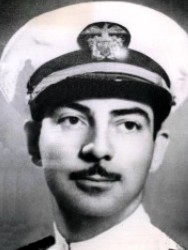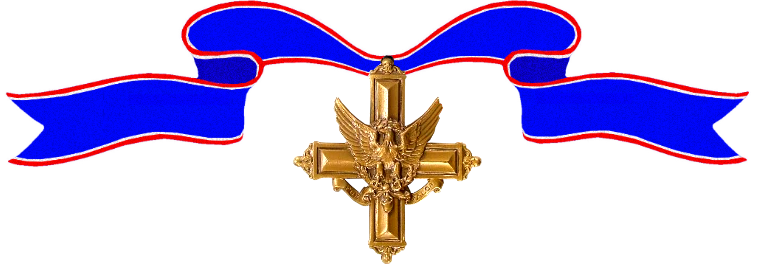Melvyn McCoy graduated from the U.S. Naval Academy at Annapolis, Class of 1927. He retired as a Rear Admiral in the U.S. Navy.

–
Cemetery:
Awards Received
-

Prisoner of War Medal
-

Distinguished Service Cross
-
Prisoner of War Medal
Service:
United States NavyRank:
Lieutenant CommanderDivision:
Prisoner of War (Philippine Islands)Action Date:
May 6, 1942 – April 4, 1943
NARA Database: Records of World War II Prisoners of War, created, 1942 – 1947Lieutenant Commander Melvyn Harvey McCoy, United States Navy, was captured by the Japanese after the fall of Corregidor, Philippine Islands, on 6 May 1942, and was held as a Prisoner of War until his successful escape on or about 4 April 1943.
-
Distinguished Service Cross
Service:
United States NavyRank:
Commander [then Lieutenant Commander]Division:
Prisoner of War (Philippine Islands)Action Date:
April 4 – July 9, 1943
Headquarters, U.S. Army Forces in the Far East, General Orders No. 47 (August 13, 1943)The President of the United States of America, authorized by Act of Congress, July 9, 1918, takes pleasure in presenting the Distinguished Service Cross to Commander [then Lieutenant Commander] Melvyn Harvey McCoy, United States Navy, for extraordinary heroism in action in the Philippine Islands, from 4 April to 9 July 1943. After eleven months as a Prisoner of War, and in weakened physical condition, Commander McCoy outwitted the Japanese guards on 4 April 1943, escaped from a prison camp, eluding pursuing patrols, and made his way on foot and by small boat from the vicinity of Davao to northern Mindanao. Hearing of a United States force in Misamis Occidental he contrived to reach its headquarters on foot and by launch. Arrangements for his evacuation having been made, he continued on foot through enemy-occupied territory. By using mountain trails, he avoided capture by numerous Japanese patrols and arrived at the rendezvous. Commander McCoy’s courage in the face of great danger and his fortitude despite his physical weakness enabled him to escape and to rejoin the United States forces with information of great military value.

